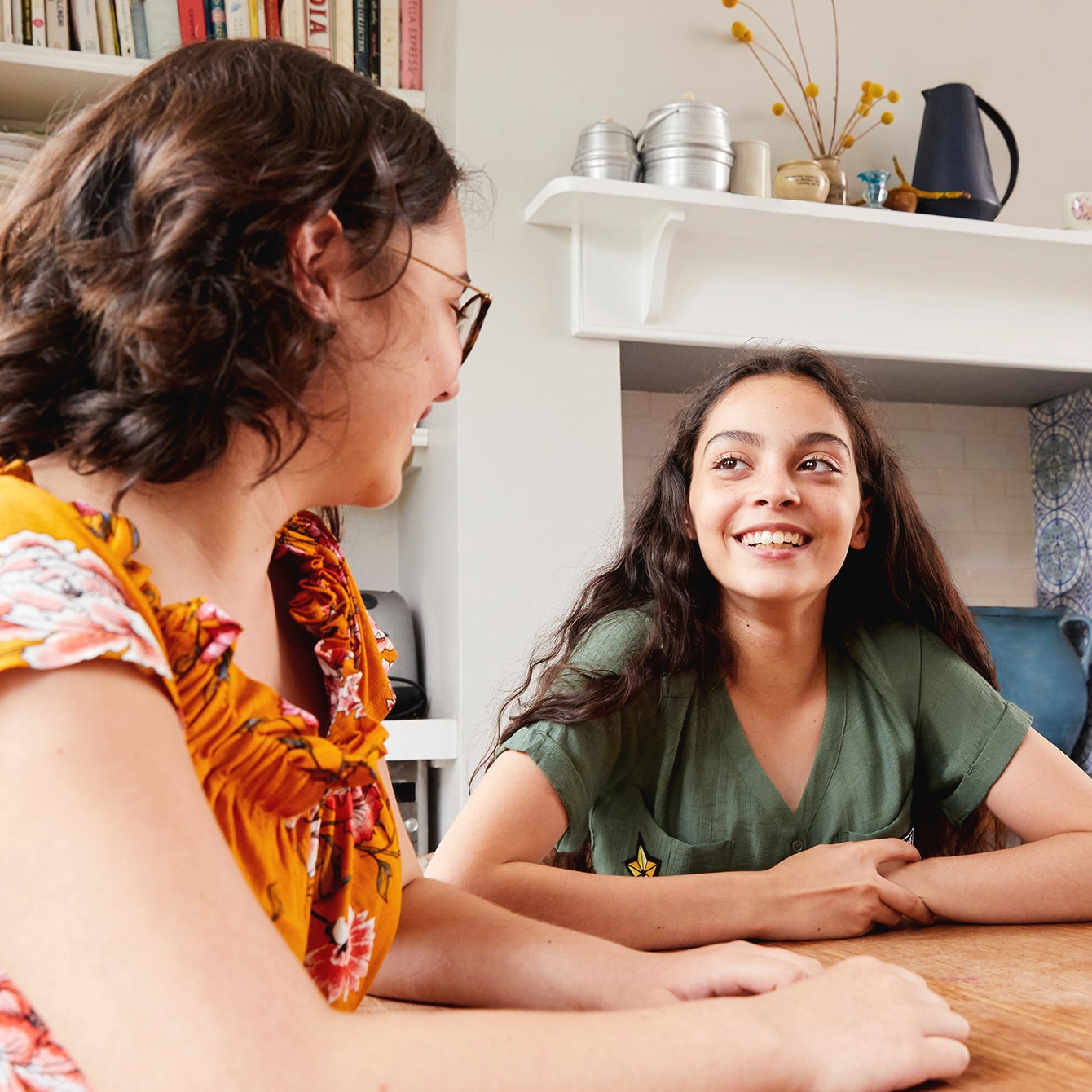Arguably the biggest difference between our own teenage years and those of our children, social media is here to stay. So how do we help our young people use it in a positive way?
Our lives before social media
If the world of social media seems daunting, it might help to think back to when you were growing up yourself.
Remember how you loved chatting to your friends on the bus and at break-time? Or the hours when you’d hog your family’s one phone (probably in the hallway) and keep your voice low in the hope that your secrets weren’t overheard?
How about when you’d buy new clothes – and spend hours trying them on in front of the mirror in your room, practising different ‘looks’? And how important it was, when your friends saw your new outfit, that they’d think it was ‘cool’?
Girls, no matter what generation, love to spend time with their girlfriends, sharing secrets and talking about fashions and heartthrobs.
Benefits of social media
One benefit of social media is its capacity to amplify a young person’s ability to share, care and compare. It allows them to focus on the things that have always been important to young people: their secrets, image, looks and insecurities. No wonder teenage girls have been shown to be some of the heaviest users of social media.
The positive and negative effects of social media
There's a growing body of evidence about the pros and cons of social media use. Research in June 2012 at the University of Georgia found that the millions of people who log on to social networking sites daily may well be boosting their self-esteem in the process. Feeling connected to others and being in control of how you’re seen by others may have a positive effect on how you see yourself.
On the downside, a study in June 2013 at the University of Michigan found it was students with narcissistic tendencies who posted most often, using social media to boost their egos and control other people’s perceptions of them – something that could have a dangerous impact on young girls.
Time spent online vs self-esteem
Another study, from Flinders University in Australia, found a correlation between the amount of time teenage girls spend online and low self-esteem and dissatisfaction with their body image (although cause and effect cannot be proven). In interviewing more than 1,000 high-school girls, researchers also found social media intensified conversations about appearance.
Almost half (46%) of the girls in the survey, including those who fit in with societal expectations of a 'normal weight', were dissatisfied with their body size. This suggests worries about body image are prevalent among girls no matter what their body size is, over and above societal factors.
Stanford University Research
Research from Stanford University linked too much screen-time and constant social media juggling with negative feelings and experiences. Girls who were social media multi-taskers were less socially adequate and more likely to have friends whom their parents considered bad influences.
Parents need to be aware of social media's positive potential, as well as its dangers, and approach it in a realistic, rather than fearful, way. This means asking appropriate questions, helping our children navigate their social networks, and trusting our instincts about when things might be going wrong.
The importance of digital downtime
FOMO – ‘Fear of Missing Out’ – is a big worry for young people. Some check their social media almost constantly to make sure they're always up to speed with what's happening in their circle.
However essential your child feels their social networks are, you can, and should, keep a check on their use of social media and set some house rules. For example, discourage them from logging-on late at night or using their smartphone after lights-out, so that they can 'switch off' before bedtime and get enough sleep.
Try to understand the importance of technology in your child’s life, but also remind them of the benefits of switching off sometimes. Why not suggest you have family time that's device-free – for ALL of you?
Encourage other activities
Encourage them to spend time on other activities, such as hobbies, sports and face-to-face interactions with friends. This will remind them that feelings of satisfaction, wellbeing and achievement can come from things outside social media, strengthening their sense of self and confidence in their inner qualities.
Action checklist How to avoid the negative effects of social networking among young people
- Encourage your child to value what’s real and what really matters
Remind them that social media is often like a showreel of life’s best bits – attention-grabbing and carefully edited. Real life isn't like that
- Talk to your child about the difference between real-life friendships and 'friends' on social media
Ask them:
- What would a true friend do for you?
- How many truly close friends do you have?
- What makes a friendship work?
- What are the hallmarks of true friendship?
- What's the difference between a friend and an acquaintance – and how many of the people you 'know' through social media are the latter, not the former?
- Encourage them to think carefully about what they share on social networks
Help your child recognise that social media ‘friends’ or ‘followers’ aren’t necessarily true friends or even acquaintances, and therefore they should be careful about what they post
- Prioritise good friendships in your own life
Be positive about the place your friends have in your life. Make sure your child knows how much you value your own closest friends – a wider network is great, but not the same as a dependable inner circle
As well as checking the privacy settings on all her social networking profiles. Remind them not to share her name and address, nor any provocative photos, school details, parents’ contact information, or anything else that might help strangers identify them. Why not create a home social networking contract that you both sign?
- Discuss the long-term nature of the internet with them
Help them realise that online means forever – they can’t change something once it's been shared even if it appears like it has been erased at the time



